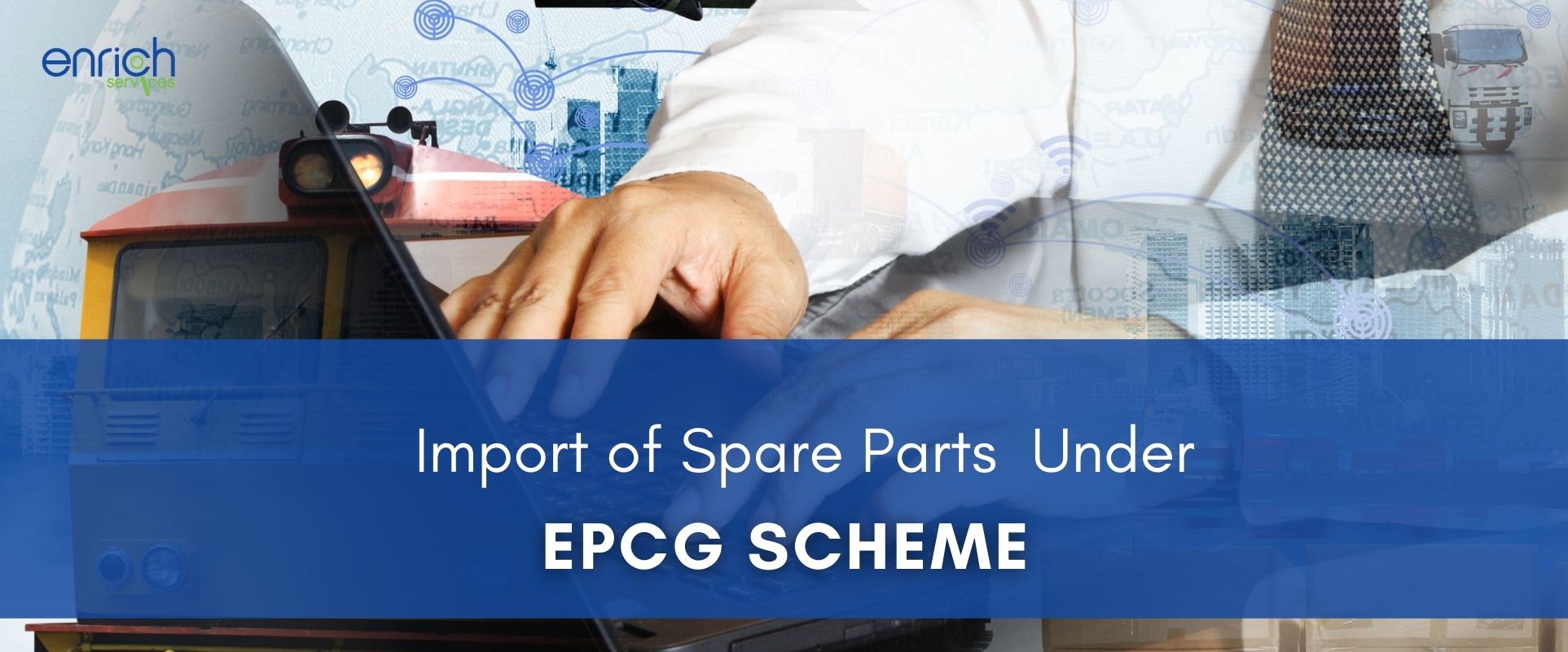Import of Spare Parts under EPCG Scheme

Import of Spare Parts under EPCG Scheme
Introduction
Import of spares, moulds, dies, jigs, fixtures, tools, Refractories & Catalysts are included in the Export Promotion Capital Goods (EPCG) Scheme. Applicant should specify the list of plant and machinery for which these items are required in the EPCG application. Applicant shall also maintain a register for stock & consumption of these items. The best part of the EPCG Scheme is that it enables the import of a wide variety of Capital goods, Spares, etc. and that too at a zero customs duty.
The process of import of spare parts under the EPCG Scheme will not be considered complete until and unless it receives a green signal from the side of the Directorate General of Foreign Trade (DGFT).
Import of spares for the existing machinery procured indigenously under EPCG Scheme
In a meeting of the port officers, the whole topic of import of spares for the existing machinery procured goods indigenously that fall under the category of EPCG Scheme was discussed thoroughly from top to bottom.
The meeting took place on 24-25th November in the year 2011. The port officers decided to ponder over the matter of import of spares individually. They wanted to equal importance to this issue as well as it plays a vital role in the entire process of import of goods.
The subject of issuance of import of spares against the capital goods that are procured indigenously was talked about to the fullest extent.
What was the outcome of the meeting held?
When we talk about the import of spares under the EPCG Scheme the port officers were just left with two alternatives. At the end of the day, the port officers had to conclude. The two options revolved around the Foreign Trade Policy.
Let’s check out what were the two options:
1. The first one was that the capital goods that have been imported under the EPCG Scheme, spares for this type of capital goods can be allowed under the EPCG Scheme.
2. The second one was that the capital goods that have been imported in the past but not as a part of the EPCG Scheme. Spares for this type of capital goods also received a green signal under the EPCG Scheme.
As per these two options, we can conclude that all kinds of spares are allowed under the EPCG Scheme.
If you give a read of Foreign Trade Policy, then you will gain a better understanding regarding the import of capital goods. Under FTP the capital goods can be procured only after invalidating an EPCG authorization.
On the other hand, when we pay attention to the capital goods that are procured domestically. These kinds of capital goods will not be treated like the ‘imported capital goods’.
So you cannot obtain the facility of the EPCG scheme for the category of capital goods that are sourced by domestic means.
Conclusion
The import of Capital goods and Spares that comes under the EPCG Scheme affects the overall picture of imports and exports in India. At the end of the day, every country wants to earn more profits by expanding their business all over the world.
If you wish to get a deeper understanding regarding the import of spares, then you can refer to the Foreign Trade Policy. Everything is stated in it, so to avoid any sort of confusion, you can visit the official site of DGFT and get better clarity on the same.
Make sure that all your documents are well maintained, as you wouldn’t like that the import of your goods gets a red signal from the side of the department due to some silly error or a minor mistake. Be smart and try to re-check and verify each word.
Before indulging in any kind of import or export, make it a point to do your research regarding all the terms and conditions stated in the process. This way, you can avoid any kind of mistakes during the process of import. The procedure of import can somewhat vary it depends on the different types of products as well. As they say my friend, exceptions are always present.
Best DGFT Consultants in Hyderabad
Authors Bio:-

